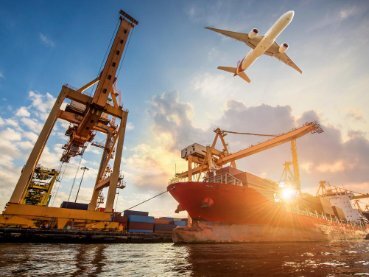
International freight forwarding is an essential service that helps businesses transport their goods globally. In this article, we will discuss the ins and outs of international freight forwarding and how it can benefit businesses. Our goal is to provide comprehensive information that can help you understand the importance of international freight forwarding and how it can help your business grow.
International freight forwarding is the process of organizing and managing the shipment of goods from one country to another. It involves coordinating transportation details between international sellers and buyers to ensure that goods reach their destination safely and on time. A freight forwarder acts as a travel agent for cargo, making all necessary arrangements for shipping goods, including customs clearance, documentation, and insurance. They work with carriers, such as airlines, ocean liners, and trucking companies, to find the most cost-effective and efficient method of transportation.
Working with an international freight forwarder has many benefits for businesses. One of the most significant advantages is that freight forwarders have extensive knowledge and experience in the transportation industry. They can help businesses navigate complex international trade regulations and ensure that all necessary documentation is in order to avoid any delays or additional costs. Freight forwarders can also provide businesses with access to a global network of carriers, which can help them find the best rates and transit times for their shipments.
Another benefit of working with an international freight forwarder is that they can provide businesses with end-to-end visibility into their supply chain. They can track shipments in real-time and provide businesses with regular updates on their shipment status. This can help businesses manage their inventory more efficiently and plan for any delays or disruptions that may occur.
The international freight forwarding process typically involves several stages. The first step is to book the shipment with the freight forwarder. The forwarder will then arrange for the goods to be picked up from the seller’s location and transported to the port or airport for export. They will handle all necessary documentation, such as bills of lading, commercial invoices, and packing lists, to ensure that the shipment meets all international trade regulations.
Once the goods arrive at their destination country, the freight forwarder will work with the customs authorities to ensure that all necessary clearance procedures are completed. They will also arrange for the goods to be transported from the port or airport to the buyer’s location.
In conclusion, international freight forwarding is a critical service for businesses that import or export goods globally. Freight forwarders can provide businesses with many benefits, including access to a global network of carriers, knowledge of international trade regulations, and end-to-end supply chain visibility. By working with an experienced international freight forwarder, businesses can ensure that their shipments reach their destination safely and on time.